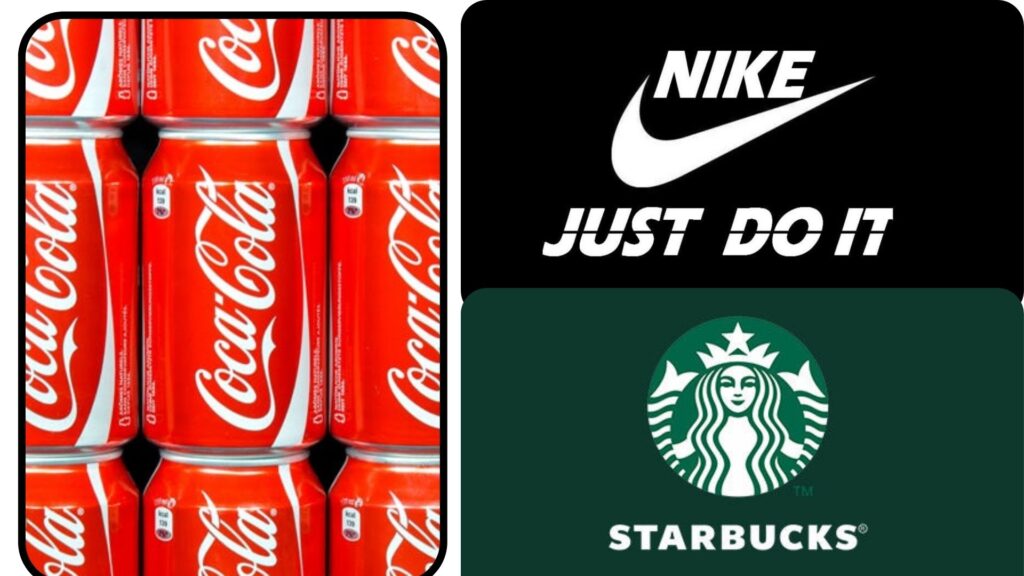A brand promise is a value or experience that a brand promises to its customers every single time when they buy a product or service from that brand. For example, Coca Cola mission statement- “To refresh the world…To inspire moments of optimism and happiness…To create value and make a difference.” tells its users that the brand is dedicated to making the world happier and more inspired place.
When a company keeps on delivering its promise, it becomes successful in creating the stronger brand value in the hearts and minds of its existing as well as potential customers. Starbucks’ promise to inspire and nurture the human spirit creates specific brand value for the coffee company.
What are Brand Promises?
A brand promise is a statement that assures an experience or value that customers can expect from the brand upon every interaction between them.
The brand must keep up with this brand promise with every customer. This helps gain customer loyalty and strengthens the brand value and credibility in the minds of consumers and business employees.
For example- “Save money. Live better” is Walmart’s brand promise. Google’s brand promise is to “Be the world’s number one source of information.”
Brand Promise vs. Tag Line / Slogan
A brand promise is something that brands share or promise with their target audiences to be in the public consciousness. It is not a public statement, and that is why brand promises are not supposed to be communicated directly to the customer. Consumers are not primarily targeted via promise instead it is used for aligning the efforts of the people actively involved in the organizational practices.
While on the other hand, tag lines or slogans are used as a public statement for framing the offerings of the brand in front of the target audiences. Slogans or taglines appear to the customers as many times as possible. For creating a tagline, brand managers and copywriters might take a number of days or months and numerous iterations to be perfect enough to speak to the target audiences in just a few words.
Promises do not need as much effort as taglines or slogans demand. Brand promises are used for talking to investors, employees, and partners who have already bought into the brand and they should be aware of what to do to continue the association.
How Brand Promises Inspire Moments of Optimism

It is often a rigorous process to develop a brand promise that reciprocates all that a brand has to offer. But it is highly beneficial for the business in the long run. Some of the reasons for its importance are stated below:
1. Communicating expectations
A brand promise often shows positive responses as customers and employees are ensured of what they can expect from the brand. This can involve the quality of products or service, level of support, etc. These expectations build up a good reputation for the brand as brands seem confident. Their products and services seem to be committed to providing a certain standard of brand experience.
2. Build a reliable relationship
A brand promise is also a building block of brand credibility, accountability, and reliance. These aspects help build a solid relationship between the brand and its customers. A promise and the confidence to keep at it gives an emotional advantage to the brand, leading to better relationships with its employees and customers.
3. Challenging the brand for success
A brand promise is beneficial for others parties in the equation and for the brand itself. A brand that is optimistic enough to make a brand promise and keep its word is focused on its goals and continuously challenges itself by raising the bar. This can lead to brand growth and success.
Elements of an Effective Brand Promise
What You Do For Whom— this simple question might help brands arrive at the right brand promise for their business. Five other considerations that can help your brand nail its brand promise are:
1. Simplicity
Maintain a simple brand promise that has ten words or less and contains a maximum of 2 sentences. Also, use simple language so that everyone can understand it easily.
2. Credibility
Your brand promise needs to be believable; thus, it needs to be similar to customers’ or employees’ experience. Credibility is built when a brand can deliver what it claims to do.
3. Unique
A brand promise can give a competitive advantage if it stands out in the crowd. Adding a little spice to your brand promise might win your brand the market share you need for success.
4. Memorable
A brand promise benefits from being memorable as it branches into all operations of the business. If the brand promise is remembered and internalized by employees, it can help them deliver the promised results over and over again.
5. Inspiring
An inspiring brand promise helps form a deep connection with consumers, which helps bring in more sales. A realistic but inspiring promise can make customers change their old preferences and give your brand a shot.
How To Build Your Brand With A Good Brand Promise
The most effective brand promises emphasize the brand’s unique contribution, assure and compel consumers of their confidence and consistency of efforts. Beyond this, five other elements can help a brand deliver an impactful brand promise:
1. Indicative
Brand promises are often evidential of your brand identity, what it does, and what sets it apart from others. It offers a statement that can include the purpose, experience, and values that the brand stands for. If it can accurately communicate your unique identity, the job is done.
2. Measurable
A promise can fall flat if there is no way to measure how well a brand is able to keep its brand promise. Hence, a quantifiable component to your brand promise can attract more audiences. This can include measures of time, speed, money, distance, etc.
3. Scope for action
The message communicated in a brand promise should be action-oriented. This action must lead to added value to customer experience, a delightful end goal, or other markers of success.
4. Distinctive
If your brand isn’t benefitting from establishing its identity, value or actions, what might be required is a distinctive feature that differentiates it from its competitors in the field. This makes your brand seem unique and authentic in its venture.
5. Consistent
A brand promise can also thrive by being consistent. This involves putting out a statement that is true for all situations, products, or experiences with your brand. Hence, the brand also benefits by building credibility from being able to deliver the said results every time.
Examples of Brand Promise

Let’s take a look at a few examples of powerful brand promises
1. Nike Promise
The Nike brand promise is way beyond its popular tagline i.e. “Just do it.” With its promise, Nike says- “To bring inspiration and innovation to every athlete* in the world.”
2. Starbucks Promise
Starbucks promises to bring itself as a coffee company that brings more to the world than just an amazing cup of coffee. Starbucks likes to get projected as a lifestyle brand. It says- “To inspire and nurture the human spirit—one person, one cup, and one neighborhood at a time.”
3. Coca-Cola Promise
Coca-Cola tries to target the mindset of its target consumers -“To refresh the world… To inspire moments of optimism and uplift… To create value and make a difference.”
Final Thoughts!
On the concluding note, it is obvious that brand promise is an extension of the brand positioning of a company.
It is an experience that users of a company can consistently expect to receive every time. The brand promise is something that can be expected from all interactions with a brand on the physical as well as emotional grounds.
How important do you consider brand promise for a company?
Pinky is an MBA in Marketing from the University of Mumbai. She loves helping people out in learning Marketing and sharing latest ideas and tactics for growing businesses.
